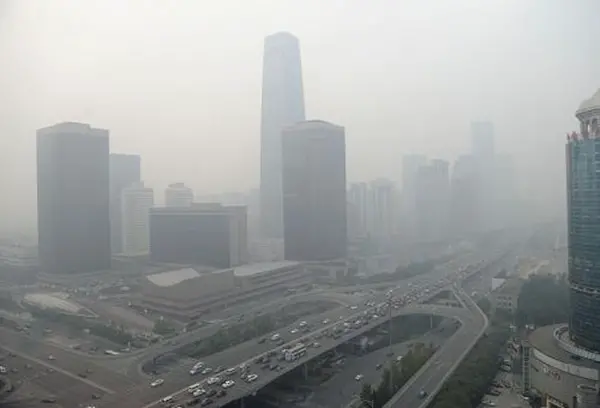Environmental protection authorities said on Sunday some measures of a contingency plan to deal with smog have not been fully implemented, stressing vehicle exhaust, especially from out-of-town vehicles, contributed heavily to the weekend's intense smog, which is expected to last for days.
According to a statement sent by the Ministry of Environmental Protection (MEP) on Sunday to the Global Times, activities in some Beijing suburbs violated the contingency plan, including the failure to suspend construction work and the illegal burning of garbage.
The MEP also said Beijing has more than 5.7 million vehicles, and the nitric oxide and hydrocarbons emitted from them account for 50 and 40 percent of the smog.
Pollution created by out-of-town vehicles was more severe, with about 300,000 vehicles entering Beijing daily, with half of them exceeding emissions standards, said the statement.
Meantime, five illegal trash-burning areas were found around Beijing, which has contributed to the smog, the statement said.
Beijing Emergency Management raised the pollution alert level from blue to yellow Friday, the third-highest warning level, because the density of PM 2.5 particles reached 350 micrograms per cubic meter and worsened on Saturday, China News Service reported Sunday.
The heavy pollution that blanketed Beijing the past days was mainly caused by local pollutants since PM 10 particles were higher than before, according to monitored data, the Xinhua News Agency reported on Sunday.
The report said clear skies are expected Monday morning thanks to the cold front, but will deteriorate again on Tuesday because of rising humidity, among other reasons.
Wang Gengchen, a research fellow from the Institute of Atmospheric Physics at the Chinese Academy of Sciences, said pollution from neighboring regions have also contributed to the smog since it spread to the city in the past weeks, and lingered due to humid conditions.
Wang said the smog could worsen this winter since the Siberian cold front may not be as strong as before, given current extreme global weather.
"Aside from waiting for the cold front to help diffuse the smog, environmental authorities have implemented measures to alleviate the smog, including limiting vehicles with heavy emissions in Beijing and implementing an odd-even license plate scheme," said Wang.
The Beijing Municipal Transport Commission recently issued draft regulations on car-booking services, stating that only those with a Beijing household registration with a car of certain engine displacements are qualified to provide the service. Authorities said the measure is aimed at easing traffic as well as reducing vehicle emissions, The Beijing News reported.
The commission also called for joint efforts and stricter law enforcement with neighboring regions to deal with the haze, said Wang, noting that Hebei should still strengthen supervision on factories which create heavy pollution.
Many cities in the Beijing-Tianjin-Hebei region have suffered mild to moderate air pollution since Saturday, and some places may suffer from heavy pollution from Tuesday to Thursday, Xinhua reported.
(GLOBAL TIMES)
 简体中文
简体中文

